Nose Piercing Smell: 7 Expert Tips To Eliminate Odor
Sniff out the truth to get rid of the smell that is bothering you!

Image: Shutterstock
A nose piercing is a great way to showcase your quirky personality in a chic way. However, if you find yourself wondering “Why does your nose piercing smell?,” it may be time for you to start taking some serious care of yours. But first, let us clear the air – it is completely normal for body piercings to smell. In fact, it is a sign that your piercing is healing. However, sometimes the cause of this odor may be deeper. Understanding the root cause of the problem is the first step towards finding effective solutions and maintaining an odor-free piercing. Join us as we unravel the reasons behind this smell and ways to get rid of it. Read on!
In This Article
Should You Be Worried If Your Nose Piercing Smells Bad?
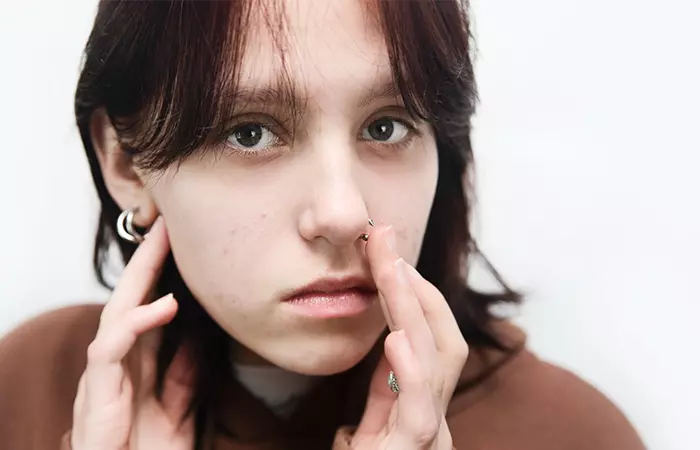
Experiencing a bad odor emanating from your nose piercing can be concerning, but it is essential to understand the underlying reasons before jumping to conclusions. In many cases, a slight smell is normal during the healing process, due to factors like bacteria buildup or sebum production (1). So it is important to maintain regular cleaning routines and follow aftercare instructions correctly to prevent your nose piercing from smelling. This principle extends to other body piercings, such as ear, navel, and genital piercings as well. Additionally, proper hygiene should also involve cleaning the jewelry itself. Neglecting to clean the jewelry may result in residue buildup, even if the piercing hole is kept clean.
However, if it still smells bad even after cleaning the piercing and jewelry, and the odor is persistent, then consult with a piercer or healthcare professional.
We know overcoming the fear of infection is not easy, so let us explore some of the potential causes or factors behind the nose-piercing smell.
Key Takeaways
- Nose-piercing smell is often caused by factors like poor hygiene or aftercare practices, sebum accumulation, bacterial growth, or infection.
- Regular cleaning during the healing period, utilizing a saline solution or tea tree oil, proper aftercare, and regular inspection of jewelry can help effectively combat foul odor.
- Suitable jewelry choices and timely professional assistance are paramount in preventing infections and addressing persistent odor issues, ensuring the longevity and health of your piercing.

Why Does My Nose Piercing Smell?
Some of the common factors that can contribute to a smelly nose piercing include:
1. Bacterial Growth: Bacteria naturally present on the skin can multiply in the warm and moist environment around the piercing, leading to a foul odor (2).
2. Sebum Accumulation: Sebum, an oily substance produced by the skin, can build up around the piercing and trap dirt and dead skin cells, particularly if the piercing is not cleaned regularly.
3. Poor Hygiene: Inadequate cleaning or improper aftercare of the piercing can result in the accumulation of dirt, oil, and dead skin cells, leading to odor.
4. Foreign Objects: If foreign objects, such as hair products or makeup, come into contact with the piercing, they can get trapped and contribute to odor-causing bacteria buildup.
5. Jewelry Material: Certain materials used in nose-piercing jewelry, such as nickel or low-quality metals, can react with skin oils and sweat, resulting in an unpleasant smell (3).
6. Infection: In some cases, a smelly nose piercing may indicate an underlying bacterial contamination causing infection, characterized by symptoms such as redness, swelling, and discharge. You should seek prompt medical attention in this regard (4). Neglecting proper aftercare can result in infections, causing bacterial buildup, pus formation, and foul odor.
Thus addressing these underlying causes through proper cleaning, hygiene practices, and jewelry selection is essential for preventing and managing a smelly nose piercing.
After uncovering the factors influencing the causes of odor, discover some practical tips and techniques to combat it, ensuring a fresh and pleasant piercing experience.
How To Get Rid Of Nose-Piercing Smell?
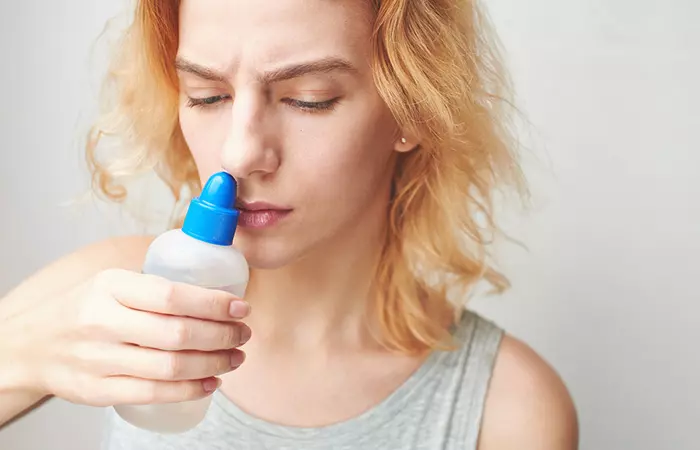
To effectively get rid of nose-piercing smell, follow the tips below:
- Cleanse your nose piercing twice a day using a saline solution or a gentle, fragrance-free soap. This helps remove bacteria and buildup around the piercing site (5).
- Apply a warm compress to the piercing area to help loosen any trapped debris and promote circulation, aiding in the healing process and removing smell (6).
- Opt for high-quality, hypoallergenic jewelry made from materials such as titanium or surgical stainless steel. Avoid jewelry made from nickel or other reactive metals, which can cause allergic contact dermatitis (3).
- Occasionally rotate the jewelry in your piercing to prevent the buildup of sebum and debris in one spot and to prevent it from becoming embedded.
- Keep the surrounding area clean and dry by consistently following proper aftercare instructions.
- Use specialized piercing aftercare products that help boost healing and combat signs of infection, including foul odor.
- If the odor persists despite proper cleaning and care, consult with a piercer or healthcare professional for further guidance and evaluation.
 Quick tip
Quick tipGeaux Gretchen, a YouTuber, shared her experience of how she dealt with her piercing smell. She describes the times she realized that the foul odor was coming from her piercings, and she started researching and taking aftercare instructions seriously. She states, “I particularly have found that taking plugs and tunnels out before going for a shower helps as the soap and shampoo goes through the piercing holes and cleans it and you can wash the jewelry separately (i) ”
By incorporating these practices into your daily routine, you can effectively eliminate the nose-piercing smell and maintain a fresh and healthy piercing. Read on to broaden your focus and explore strategies to clean piercings so they do not emit any smell.
How Do I Clean My Piercings So They Won’t Smell?

To effectively clean your nose piercings and prevent odor formation, follow these detailed steps:
1. Gentle Cleansing Routine: Gently clean your nose piercing twice a day using a saline solution or a mild, fragrance-free soap. Ensure that the solution is applied thoroughly around the piercing site to remove any crusty buildup of bacteria or debris.
2. Tea Tree Oil Application: Take a carrier oil like coconut or jojoba oil and add in a few drops of tea tree oil. It has natural antibacterial properties that can combat odor-causing bacteria (7). Apply this mixture to the piercing using a cotton swab.
3. Proper Rinse: After cleansing, rinse the piercing with warm water to ensure that all cleaning solution residue is removed. This helps prevent any potential irritation or drying of the skin around the piercing.
4. Use A Paper Towel: Pat the area around the piercing dry with a soft, clean paper towel. Avoid using fabric towels that may leave behind fibers or lint, as these can irritate the piercing and trap bacteria.
5. Maintain Overall Hygiene: Keep the area around your nose piercing clean and dry throughout the day, and avoid touching it with dirty hands to prevent the spread of bacteria.
6. Regular Jewelry Inspection: Check your nose-piercing jewelry regularly for any signs of damage, corrosion, or buildup. Clean your jewelry with a gentle jewelry cleaner, or sterilize it at regular intervals to remove any accumulated debris and maintain its hygiene.
By following these meticulous cleaning practices, you can effectively prevent odor formation and ensure the health and longevity of your nose piercings, but one of the other important aspects of piercing hygiene is the materials used in piercing jewelry. Hence, uncover below the best options for piercing materials to minimize odor and maintain optimal piercing hygiene.
Least Smelly Piercing Materials
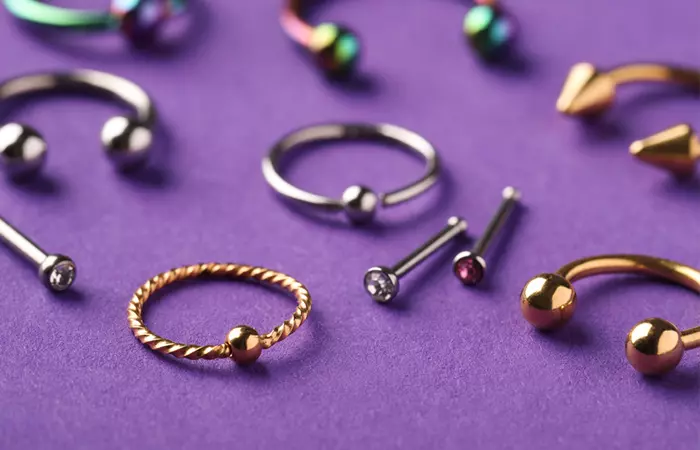
When selecting piercing materials, opt for those that are least likely to corrode, or cause allergic reactions to promote optimal hygiene. Materials like titanium and surgical stainless steel are excellent choices due to their non-reactive nature and resistance to corrosion; they minimize the risk of bacterial buildup and unpleasant smells. Niobium is another hypoallergenic option that is highly resistant to corrosion and less likely to trigger allergic reactions or produce odors (8). Additionally, materials like gold and platinum are more expensive but offer a luxurious and odor-free piercing experience. By choosing your piercing jewelry materials carefully, you can ensure a clean and hygienic piercing with minimal risk of odor or irritation.
Having learned about the least smelly piercing materials, below are some actionable tips and techniques to ensure a clean and odor-free piercing experience, and to safeguard against common complications for long-term piercing health.
How To Avoid Infections And Odors In Nose Piercings?
To maintain the health and freshness of your nose piercing while preventing infections and odors, adhere to these essential guidelines:
- Refrain from touching your piercing with unwashed hands or allowing others to do so.
- Stay vigilant against airborne contaminants like dust and pet dander that may come into contact with your piercing.
- Delay swimming in pools, hot tubs, or natural water bodies until your piercing has fully healed (9).
- Ensure your pillowcase is clean and avoid sleeping on your face to minimize irritation.
- Steer clear of harsh cleansers, alcohol-based products, or fragranced items near your piercing.
- Keep your hair away from the piercing site to prevent the introduction of bacteria and scalp oils.
- Resist the urge to fiddle with or unnecessarily rotate the jewelry, as this may lead to irritation and bacterial entry.
- Pay attention to your diet, avoiding foods known to exacerbate body odors, such as garlic or spicy dishes (10).
 Did you know?
Did you know?While it is necessary to stick to these essential guidelines for preventing infections and odors in nose piercings, it is also crucial to understand when professional assistance may be necessary. Check out the next section to know when to consult a healthcare professional.
When To Seek Professional Help?
Knowing when to seek professional help for your nose-piercing smell is vital for addressing any underlying issues and ensuring the health of your piercing. If despite following proper cleaning and care routines, the odor lingers or worsens, it is advisable to consult with your piercing professional or healthcare provider. Additionally, if you experience symptoms such as increased redness, swelling, discharge, or pain around the piercing site, seeking prompt medical attention is crucial, as these may indicate an infection or other complications requiring professional treatment. Do not hesitate to reach out for expert assistance to address any concerns and maintain the well-being of your nose piercing and overall health.
No one likes to walk around with a foul smell in their nose. Hence, understanding the reasons behind a smelly nose piercing is essential as it can enable you to take proactive steps towards getting rid of it. By cleaning your piercing regularly, selecting appropriate jewelry materials, and seeking professional help when needed, it is possible to minimize and even eliminate a nose-piercing odor. Remember, proper care is essential not only for preventing unpleasant smells but also for ensuring the health and longevity of your piercing.
Infographic: Tips To Eliminate Nose Piercing Odor
Nose piercings are a fun way to express yourself, but keeping them odor-free can be a little tricky if you don’t know the right steps. Don’t worry, as we have all the secrets to preventing unwanted smells and ensuring that your piercing remains as fresh as the day you got it! The infographic below lists a few easy-to-follow and essential tips that will help you keep the funky smell from the piercing area at bay. Take a look!
Some thing wrong with infographic shortcode. please verify shortcode syntaxFrequently Asked Questions
How long will my septum piercing smell?
Initially, some odor may be noticeable during the healing period, which typically lasts several weeks to mostly 2-3 months. Nevertheless, the duration can vary depending on individual healing processes, hygiene practices, and jewelry materials. Generally, maintaining good hygiene and using appropriate cleaning techniques can help minimize and eventually eliminate any lingering odor from a septum piercing. If concerns persist, consult your piercer or healthcare professional.
Can I remove my nose piercing if it smells bad?
Yes, you can remove your nose piercing if it smells bad, but it is essential to address the underlying cause first to prevent further complications. Consult with a piercing professional or healthcare provider for guidance on proper removal and follow-up care.
Why does my nose piercing smell after 2 years?
Even after two years, your nose piercing odor may persist due to trapped bacteria, sebum, or debris around the piercing site, highlighting the importance of continued hygiene practices, and the potential need for a professional evaluation.
Can people smell my nose ring?
It is unlikely that others can smell your nose ring itself, but if there is an odor associated with your nose piercing, others may notice it in close proximity.
Why does the nose ring smell like fish or cheese?
The smell resembling fish or cheese associated with a nose ring is often caused by the buildup of bacteria, sebum, and dead skin cells around the piercing site. These substances can combine to produce an unpleasant odor, similar to fish or cheese, which transfers from the piercing area to your jewelry.
Why does my septum piercing smell when I move it?
When you move your septum piercing, the friction and disturbance can cause the release of trapped bacteria, sebum, and other debris from the piercing site, leading to an unpleasant odor. This smell is often more noticeable during movement due to the increased agitation of the piercing.
Why does my nose piercing smell even after I clean it?
If the jewelry material is reactive, or if there is an infection present, cleaning alone may not eliminate the smell. So, it is essential to consult a piercing professional if the smell persists for further evaluation and guidance.
Uncover the mystery behind why your nose piercing might be emitting an unpleasant smell. Delve into the common causes and practical solutions to combat odor and maintain cleanliness and freshness in this insightful video. Click play to know more!
Personal Experience: Source
StyleCraze's articles are interwoven with authentic personal narratives that provide depth and resonance to our content. Below are the sources of the personal accounts referenced in this article.
(i) Why Does My Piercing Smell?
https://www.youtube.com/watch?v=C0D0gm-jR-s
References
Articles on StyleCraze are backed by verified information from peer-reviewed and academic research papers, reputed organizations, research institutions, and medical associations to ensure accuracy and relevance. Read our editorial policy to learn more.
- A Comprehensive Review of Topical Odor-Controlling Treatment Options for Chronic Wounds
https://www.ncbi.nlm.nih.gov/pmc/articles/PMC5098468/ - The Effects of Ventilation, Humidity, and Temperature on Bacterial Growth and Bacterial Genera Distribution
https://www.ncbi.nlm.nih.gov/pmc/articles/PMC9691097/ - Nickel Allergy and Allergic Contact Dermatitis: A Clinical Review of Immunology, Epidemiology, Exposure, and Treatment
https://onlinelibrary.wiley.com/doi/full/10.1111/cod.13327 - Body Piercing Infections
https://www.ncbi.nlm.nih.gov/books/NBK537336/ - The Impact of Intraoperative Saline Irrigations on Bacterial Load Within the Maxillary Sinus
https://www.ncbi.nlm.nih.gov/pmc/articles/PMC4390042/ - Ameliorative Potential of Hot Compress on Sciatic Nerve Pain in Chronic Constriction Injury-Induced Rat Model
https://www.frontiersin.org/journals/synaptic-neuroscience/articles/10.3389/fnsyn.2025.859278/full - Determining the Antimicrobial Actions of Tea Tree Oil
https://www.ncbi.nlm.nih.gov/pmc/articles/PMC6236410/ - Jewelry For Initial Piercings
https://safepiercing.org/jewelry-for-initial-piercings/ - Infections Acquired via Fresh Water: From Lakes to Hot Tubs
https://journals.asm.org/doi/10.1128/microbiolspec.iol5-0019-2015 - Consumption of Garlic Positively Affects Hedonic Perception of Axillary Body Odour
https://www.sciencedirect.com/science/article/abs/pii/S0195666315300787 - Influence of Tobacco Smoking on the Development of Halitosis
https://www.ncbi.nlm.nih.gov/pmc/articles/PMC8908054/
Stop Nose Piercing Odor Now | Quick Smell-Fighting Tips
Watch this video to discover effective ways to banish nose piercing smell. Learn top cleaning rituals, jewelry tips, and infection prevention. Dive in and keep your piercing fresh now!
Read full bio of Rodrigo Casco
Read full bio of Sangita Goel
Read full bio of Madhumati Chowdhury
Read full bio of Vaishali Sinha






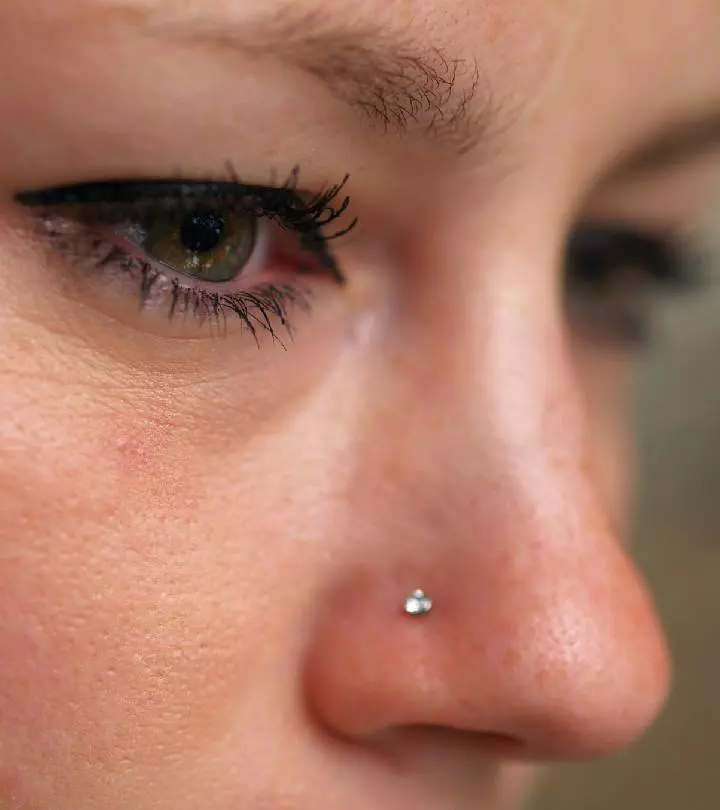

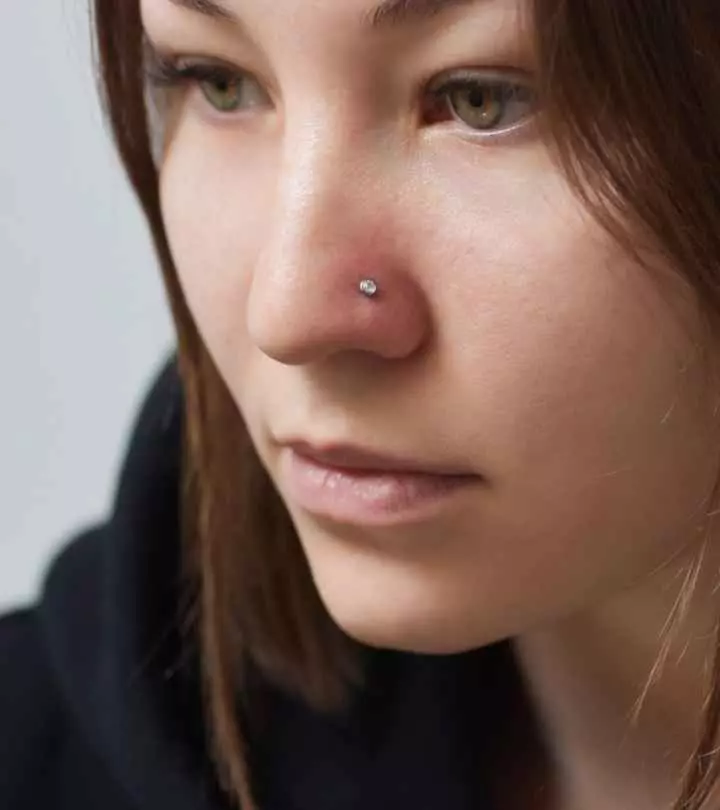
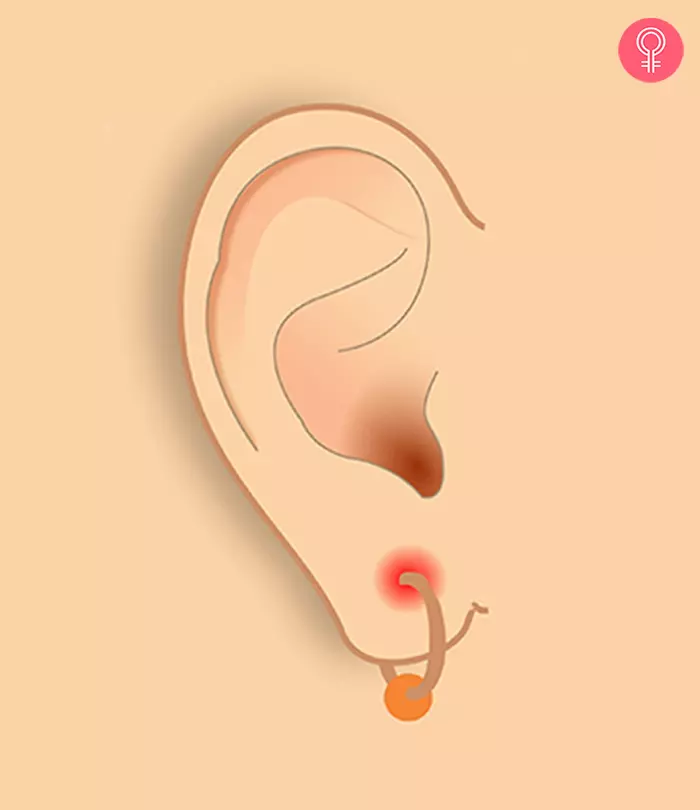
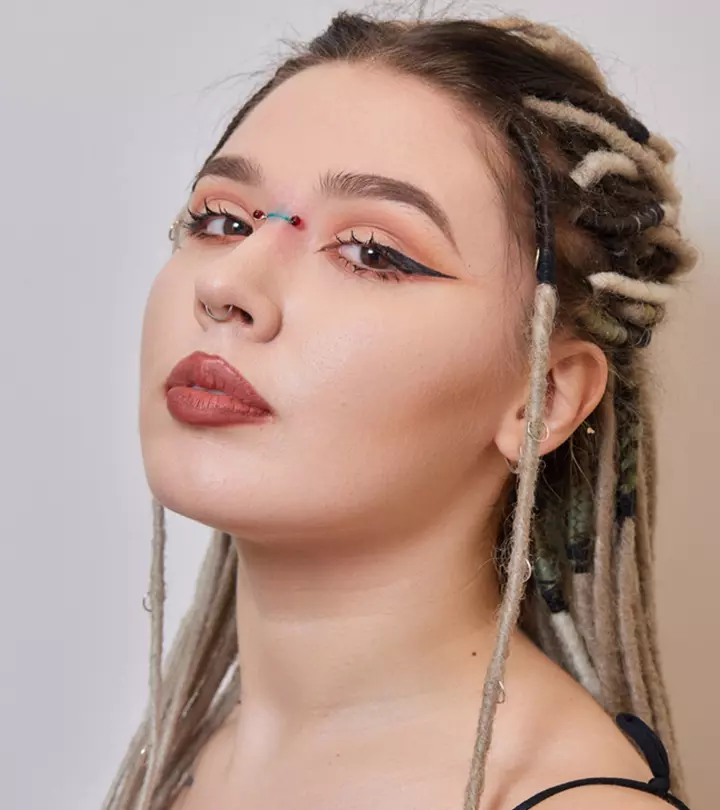





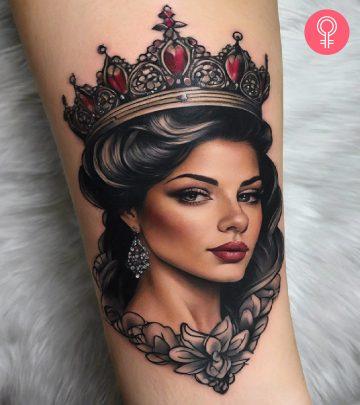


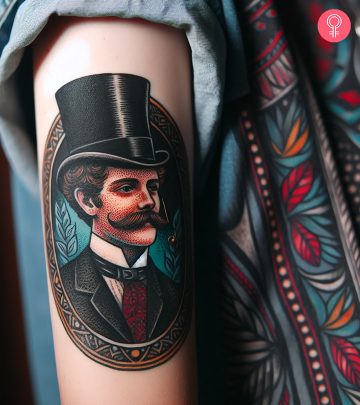






Community Experiences
Join the conversation and become a part of our empowering community! Share your stories, experiences, and insights to connect with other beauty, lifestyle, and health enthusiasts.